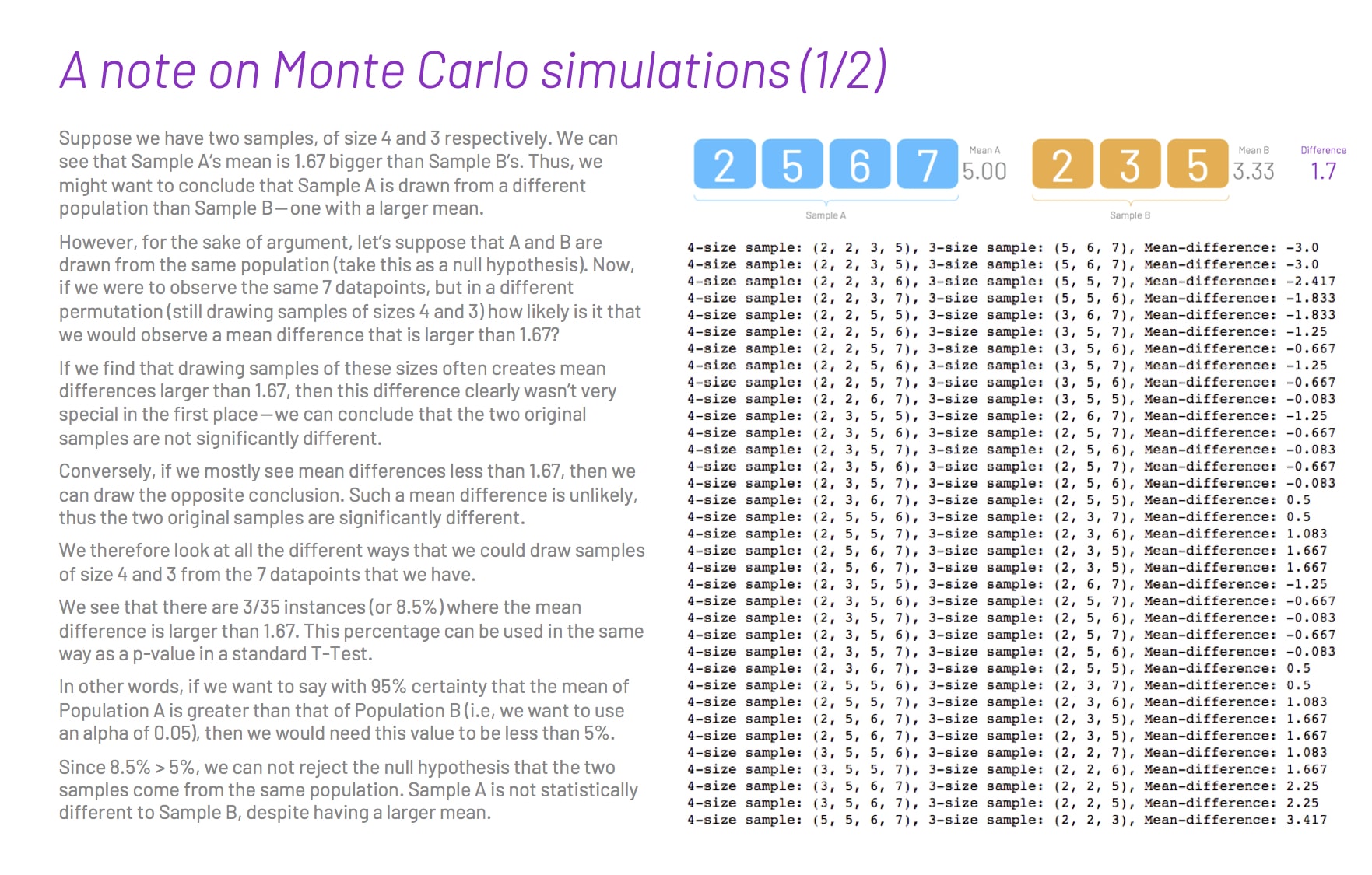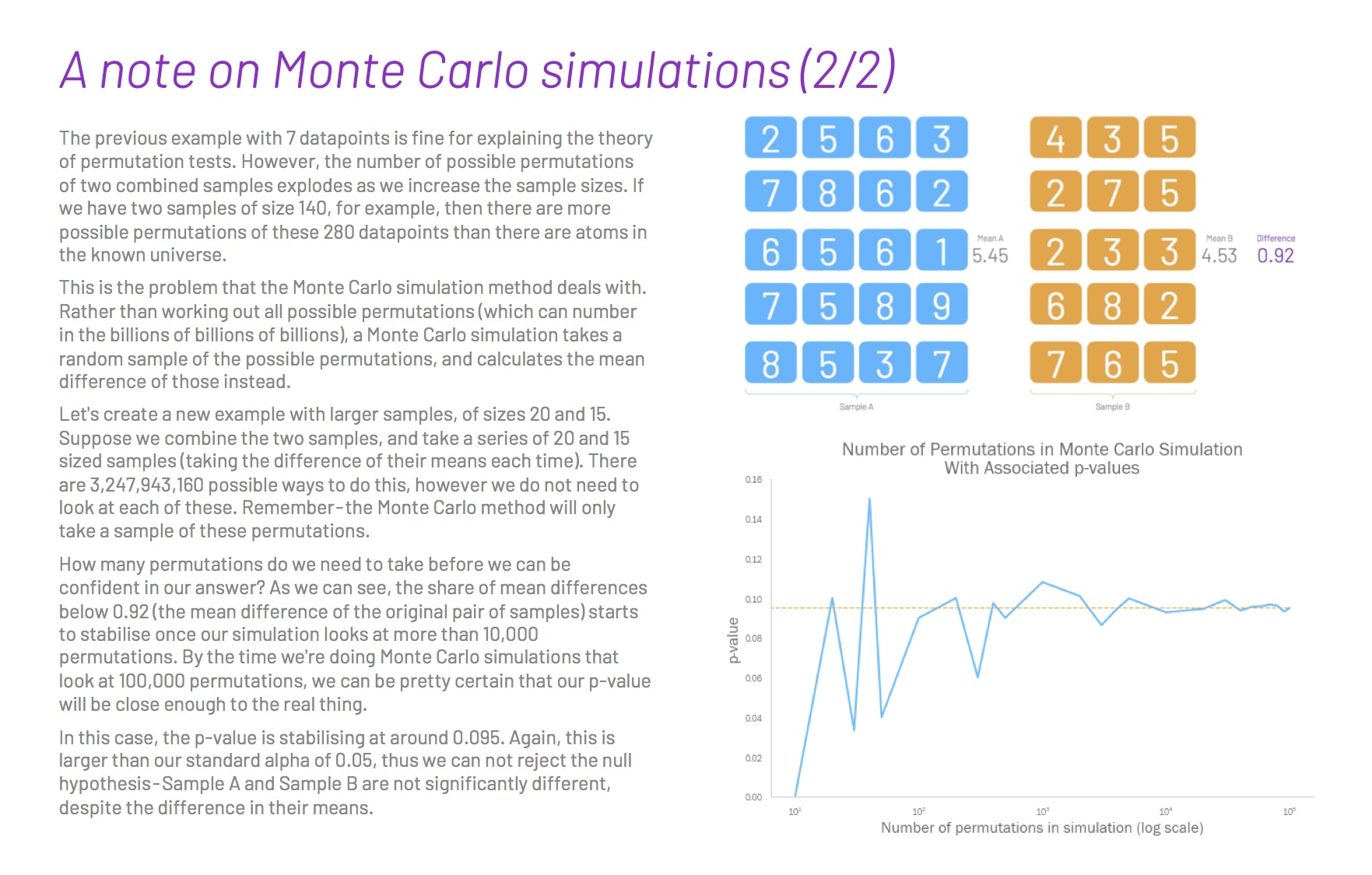
the motivation
The "Difficult Third Album" is a well known phenomenon in the music industry, describing the problems that bands have when recording their third releases.
There are certainly notable examples of this (as fans of early 00s staples The Strokes and Franz Ferdinand can attest), but is the decline in quality between albums two and three an inevitability (or at least statistically significant)?
the approach
Though the 'quality' of an album is, of course, subjective, we can look to review aggregator Metacritic, which calculates a weighted average of different critic reviews for each album. This Metascore is thus a reliable measure we have for an album's ‘true’ quality.
We can scrape data for each album on Metacritic, including, amongst other things, its Metascore, its release date, and its genre. Having stored this information in a Pandas dataframe, we can filter for rock artists, and work out whether an album was a band's debut, their second release, or their third, etc.
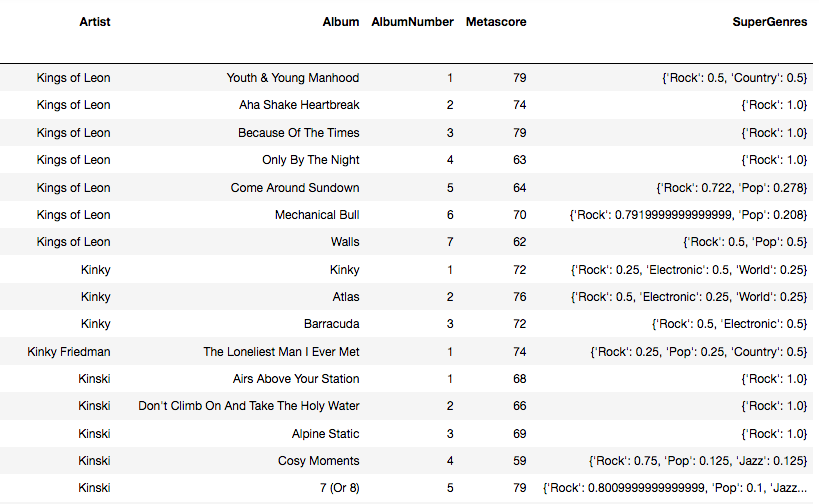
We can then calculate how an artist's metascores evolved over time, relative to their debut album (each line in the chart below represents one band).
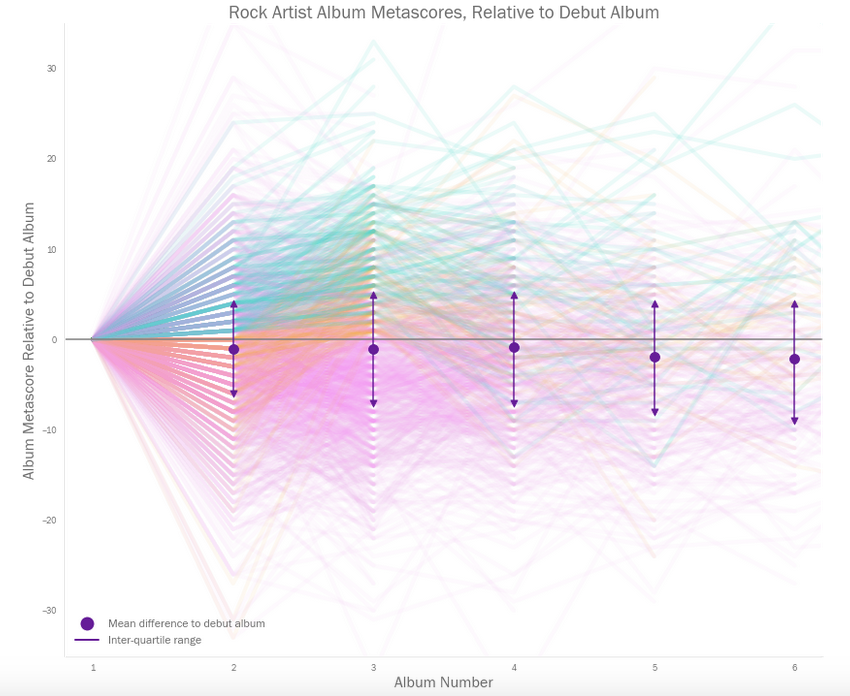
Though we see a drop off in Metascores after a band's debut album, we need to conduct a test to verify the statistical significance one way or the other. In this case, we can use Monte Carlo simulations.
the findings
We conduct three experiments. First, we compare the scores of third albums against scores of first and second albums. Indeed, we find a statistically significant difference.
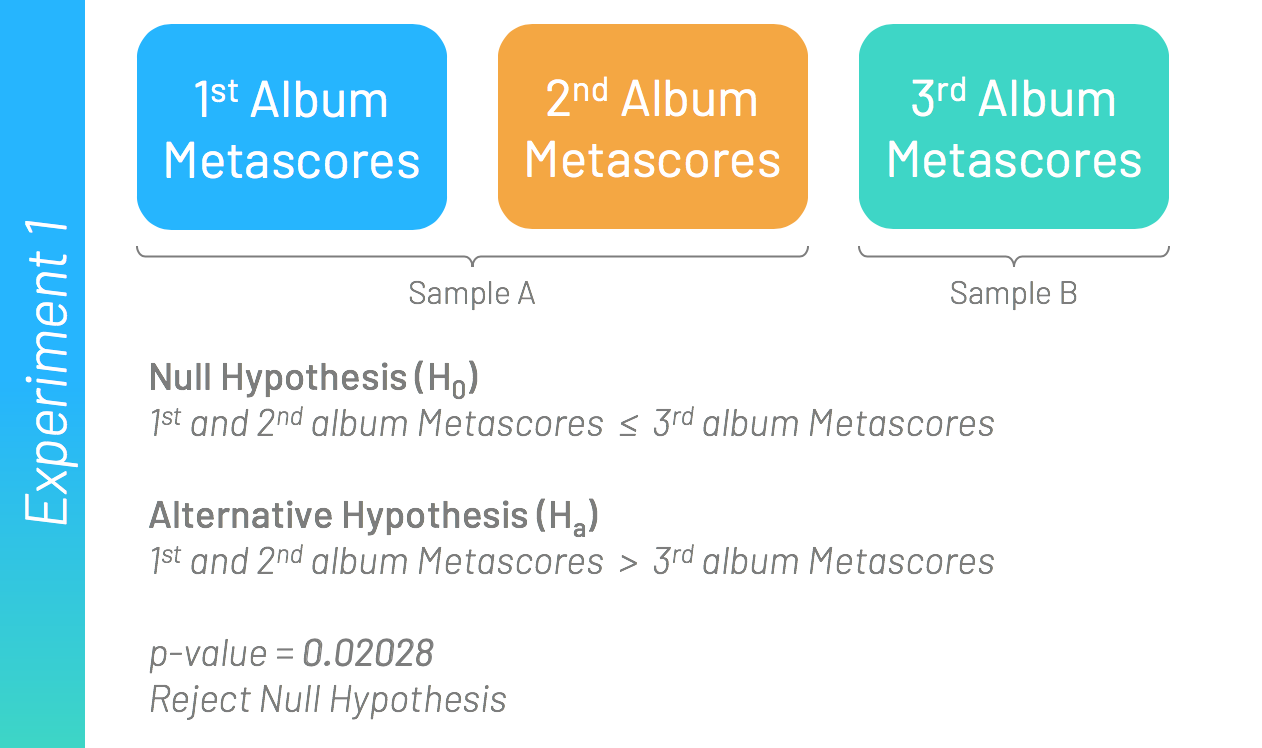
However, there isn't a statistically significant drop in Metascore between albums two and three.
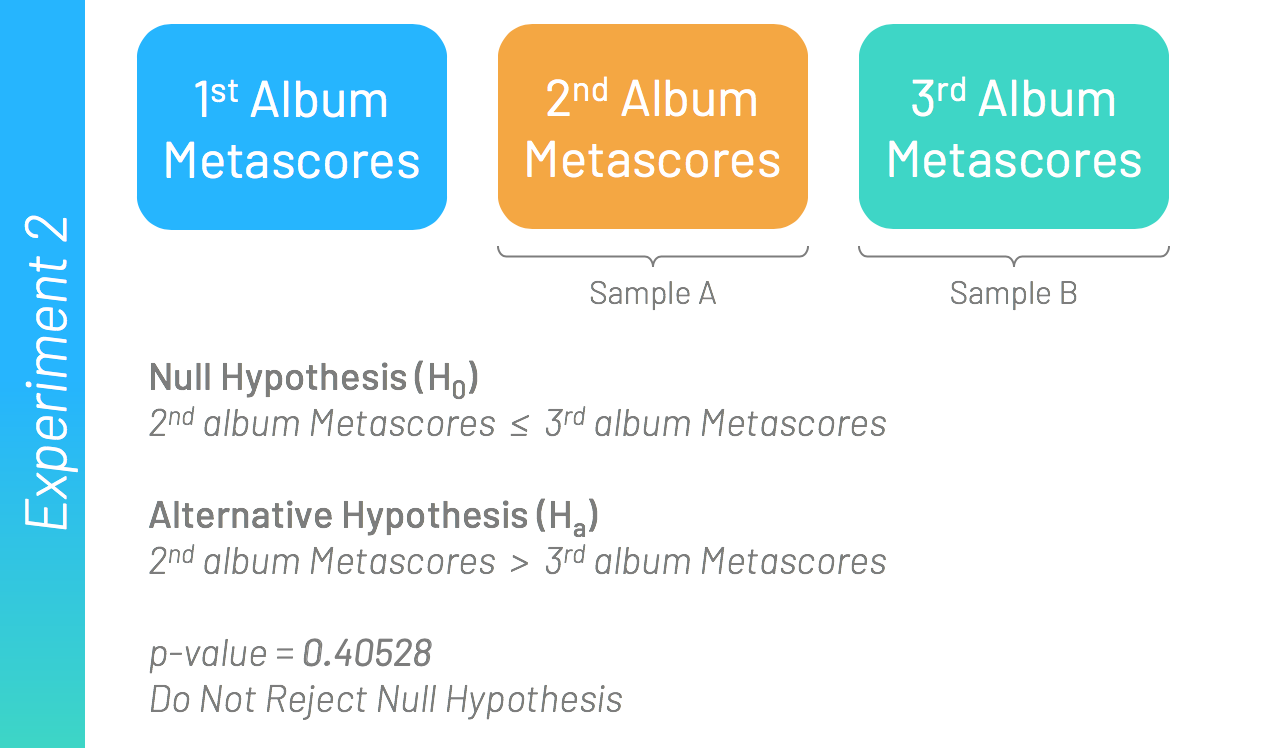
Instead, it seems that the drop in album quality we observed in Experiment 1 is in fact due to a statistically significant drop between albums one and two. So, far from the third album being the ‘difficult’ one, it seems that bands face an even greater challenge making their second.
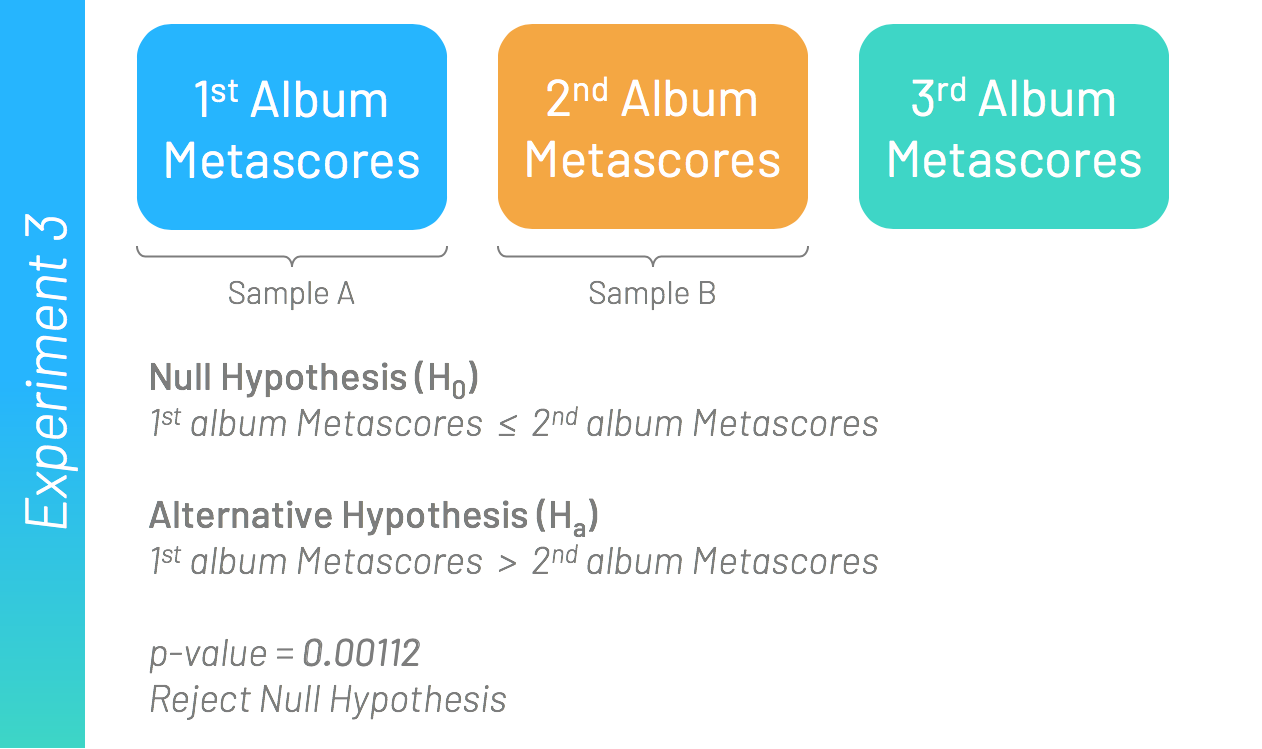
the techniques
Analysis conducted using Python libraries and APIs:
- Requests and BeautifulSoup4 for web scraping
- Pandas for data munging
- Numpy for creating the Monte Carlo simulation functions
- Matplotlib for data visualisation
the blog
"The ‘Difficult Third Album’ is as good as folklore in the music industry. A band’s debut album has, for all intents and purposes, been under construction since their very inception. It sounds new and fresh, and it tends to come without the weight of expectation. A band’s second album is then produced with the energy and confidence that comes from the success of the first. And even if a group’s sound hasn’t moved on that much from their debut, it’s unlikely that people will have tired of it after just one release (assuming it was good in the first place). So, if bands are able to knock out decent debuts and sophomores, what could make album number three so tough?..."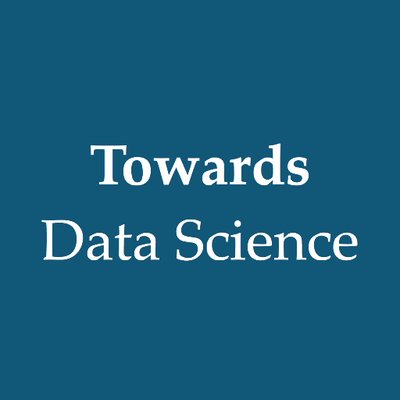
 Follow Callum Ballard on Towards Data Science
Follow Callum Ballard on Towards Data Science
Can Monte Carlo Simulations Dispel the ‘Difficult Third Album’?
An introduction to permutation tests and Monte Carlo simulations using Python
the theory
The hypothesis testing was conducted using Monte Carlo simulations.
Implementing this in Python requried a custom function, created using Numpy. Note - a gist for the subtract_array function used can be found here.

